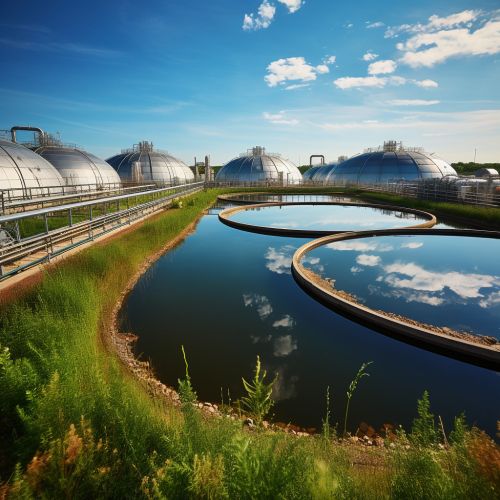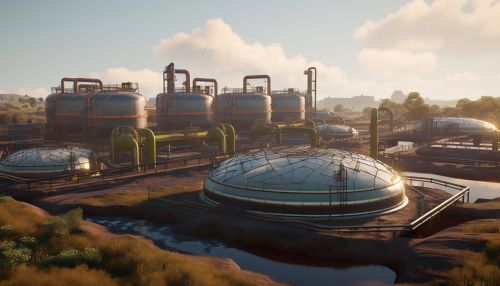Mechanisms of Microbial Biotechnology in Environmental Science
Introduction
Microbial biotechnology is a branch of biotechnology that applies microbial sciences to create technological advances in applied science and engineering. The discipline of microbial biotechnology encompasses areas of microbiology and biotechnology with the requirement of sound knowledge base in molecular biology, immunology, genetic engineering, biochemistry and other related fields. This article focuses on the mechanisms of microbial biotechnology in environmental science.
Microbial Biotechnology
Microbial biotechnology, otherwise known as microbial technology, is an important aspect of biotechnology that involves the use of microorganisms such as bacteria, fungi, algae, and viruses in the production of a variety of products for human benefit. The field of microbial biotechnology has made significant contributions to the area of environmental science, particularly in the areas of waste treatment, pollution control, and environmental restoration.
Mechanisms of Microbial Biotechnology in Environmental Science
Microbial biotechnology utilizes the mechanisms of microorganisms to provide solutions to environmental problems. These mechanisms include the metabolic processes of microorganisms, their genetic manipulation, and their interaction with the environment.
Metabolic Processes
The metabolic processes of microorganisms play a crucial role in the application of microbial biotechnology in environmental science. Microorganisms have the ability to degrade a wide range of organic compounds, which makes them ideal for use in waste treatment and pollution control. For example, bacteria are used in the treatment of sewage and industrial waste to break down organic matter into simpler substances that can be easily removed or further treated.


Genetic Manipulation
Genetic manipulation of microorganisms is another mechanism used in microbial biotechnology. This involves the alteration of the genetic material of microorganisms to enhance their ability to degrade pollutants or to produce useful substances. For instance, genetically modified bacteria have been used to clean up oil spills by enhancing their ability to degrade oil.
Interaction with the Environment
The interaction of microorganisms with the environment is another important mechanism in microbial biotechnology. Microorganisms are used to restore degraded environments through a process known as bioremediation. This involves the use of microorganisms to remove pollutants from the environment or to transform them into less harmful substances.
Applications of Microbial Biotechnology in Environmental Science
Microbial biotechnology has a wide range of applications in environmental science. These include waste treatment, pollution control, environmental restoration, and the production of biofuels.
Waste Treatment
Microorganisms are used in the treatment of waste to degrade organic matter and remove harmful substances. This is done through a process known as biological treatment, which involves the use of bacteria, fungi, and other microorganisms to break down waste materials.
Pollution Control
Microbial biotechnology is also used in pollution control. This involves the use of microorganisms to degrade pollutants and transform them into less harmful substances. For example, bacteria are used to degrade oil in the event of an oil spill.
Environmental Restoration
Microorganisms are used in environmental restoration to restore degraded environments. This is done through a process known as bioremediation, which involves the use of microorganisms to remove pollutants from the environment or to transform them into less harmful substances.
Production of Biofuels
Microbial biotechnology is used in the production of biofuels. This involves the use of microorganisms to produce biofuels such as bioethanol and biodiesel from organic matter.
Conclusion
Microbial biotechnology plays a crucial role in environmental science. Through the mechanisms of metabolic processes, genetic manipulation, and interaction with the environment, microorganisms are used to provide solutions to environmental problems. The applications of microbial biotechnology in environmental science include waste treatment, pollution control, environmental restoration, and the production of biofuels.
